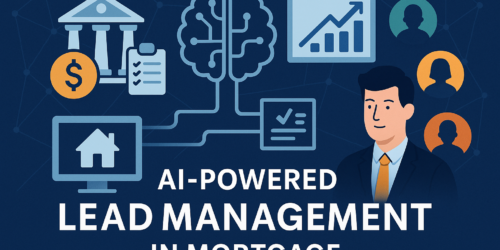Reading great books can change how we think, work, and lead. In my case, two books—The Inner Game of Tennis and Moneyball—have had a big impact on how I approach both personal growth and business strategy. Whether you’re working on improving your personal skills or optimizing your sales and marketing efforts, these books offer powerful lessons that can transform your mindset and processes.
Want to learn how predictive data can transform your sales and marketing?
Schedule a Demo Today!
The Inner Game of Tennis: Mental Mastery in Sales and Beyond
I love The Inner Game of Tennis by Timothy Gallwey. It’s a quick read but packs a punch, especially when it comes to understanding the mental side of performance. The book introduces two key ideas: Self 1, the mental, analytical part of us, and Self 2, the natural, physical side. For sales professionals and marketers, finding the right balance between these two “selves” can unlock higher performance.
In a fast-paced sales environment, it’s easy to get stuck in overthinking—analyzing numbers, chasing quotas, and constantly strategizing. That’s where Self 1 can sometimes get in the way. While data and strategy are essential, there’s also value in trusting your natural instincts, experiences, and intuition—what Gallwey calls Self 2. Relying too much on analytics can create mental blocks, while letting Self 2 take over can bring out more fluid, natural decision-making.
In sales and marketing, this concept can help teams improve their approach. For example, trusting your gut when it comes to client relationships or quickly responding to market trends can often be more effective than over-analyzing. Sometimes, the best decisions come from a blend of instinct and data.
Moneyball: Data-Driven Decision-Making for Sales and Marketing
Moneyball by Michael Lewis was a game-changer for me. It wasn’t just a good read; it’s the reason my co-founder and I started our business eight years ago. The story of how the Oakland A’s baseball team used data and analytics to make smarter decisions with fewer resources resonated deeply with me, particularly in the context of sales and marketing.
In a highly competitive environment like sales, companies are often trying to do more with less—just like the Oakland A’s. Moneyball is about using the right numbers and insights to make better, faster decisions in real time. In marketing and sales, this same approach applies. It’s about understanding which leads to prioritize, when to engage, and how to optimize resources for maximum impact.
At ProPair, we embraced this Moneyball mindset by developing predictive AI solutions that help sales teams analyze data and make informed decisions. Our technology enables businesses to use predictive lead scoring, lead assignment, and real-time analytics to make smarter decisions about where to focus their efforts. Like the A’s, you don’t always need the largest team or the biggest budget—you just need the right data at the right time.
Read More: How AI is Shaping the New Era of CRM: Revolutionizing Customer Engagement
By leveraging predictive AI, sales teams can achieve more without burning out their resources. The same way the A’s gained a competitive edge through their smart use of analytics, sales teams can use data to drive better outcomes and increase conversion rates. The key is in identifying patterns and trends within the data and using that information to act quickly and effectively.
Applying Lessons from The Inner Game of Tennis and Moneyball to Sales
Both The Inner Game of Tennis and Moneyball offer valuable lessons that can improve your sales and marketing strategy:
- Find the balance between instinct and data: Trust your experience and intuition (Self 2), but let the data guide you (Self 1). For example, use predictive lead scoring to prioritize your leads but rely on your natural relationship-building skills when engaging with prospects.
- Data-driven decision-making is essential: In Moneyball, data helped the Oakland A’s compete with teams that had more resources. In sales and marketing, the same applies. Using predictive AI to analyze sales data, you can optimize your efforts, improve lead assignments, and maximize conversion rates.
- Continuous improvement and adaptation: In both books, there’s an underlying theme of growth and continuous improvement. Whether it’s enhancing your mental approach (from The Inner Game of Tennis) or refining your data-driven strategies (from Moneyball), staying adaptable and learning from the process is critical.
By applying these principles to your sales process, you can create a more efficient and balanced strategy. Trust your instincts when they’re needed, but always back them up with strong data-driven decisions. With predictive AI tools, your team can operate like a well-oiled machine, optimizing each step in the process for greater results.
The Broader Impact of Predictive AI on Sales and Marketing
In today’s competitive landscape, leveraging predictive AI in sales and marketing is no longer optional—it’s necessary. The power of AI lies in its ability to turn vast amounts of data into actionable insights, allowing teams to be more precise in their actions. Instead of guessing which leads to prioritize or spending time on manual processes, AI helps streamline efforts and ensure your team is focused on what matters most.
Just like Moneyball teaches us, data can level the playing field, giving smaller teams the tools to compete with larger competitors. Predictive AI makes your sales and marketing efforts more efficient, letting you do more with less. It’s not just about having data—it’s about how you use it to make smarter, faster decisions.
Both The Inner Game of Tennis and Moneyball have reshaped how I view strategy, both in life and in business. Whether it’s mastering the balance of instinct and analysis or using data to drive decisions, these books offer powerful lessons that anyone in sales and marketing can apply to their day-to-day efforts. By adopting these strategies and integrating predictive AI into your processes, you can take your business performance to the next level and stay ahead of the competition.


